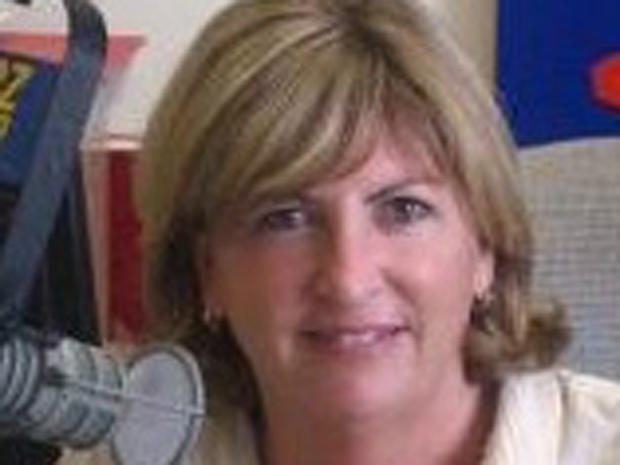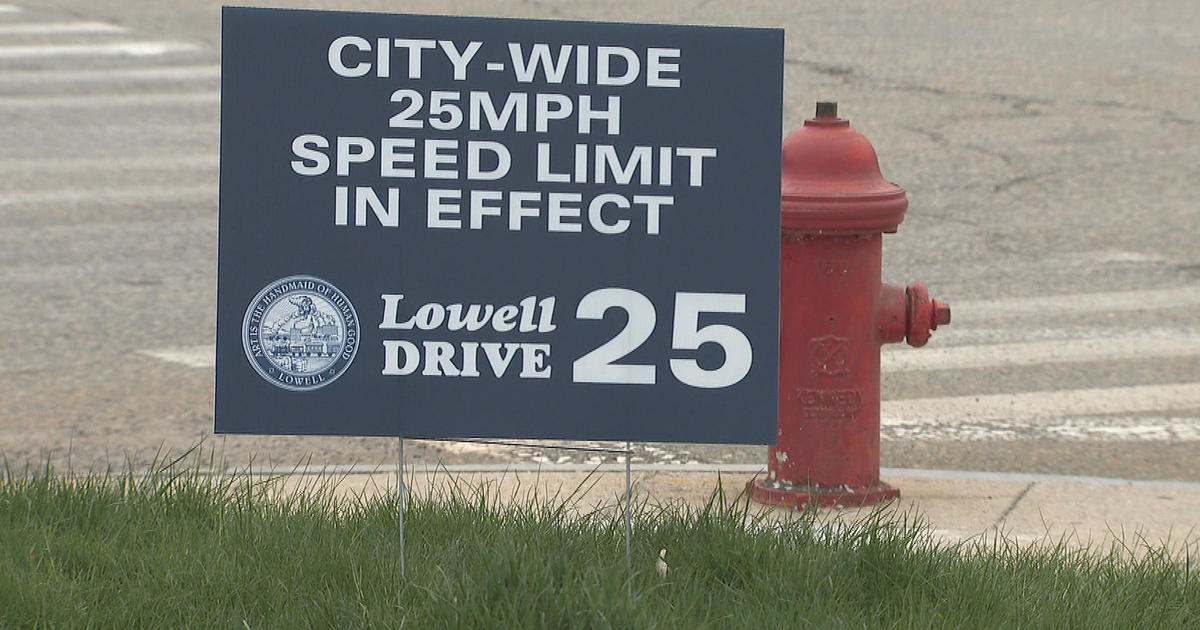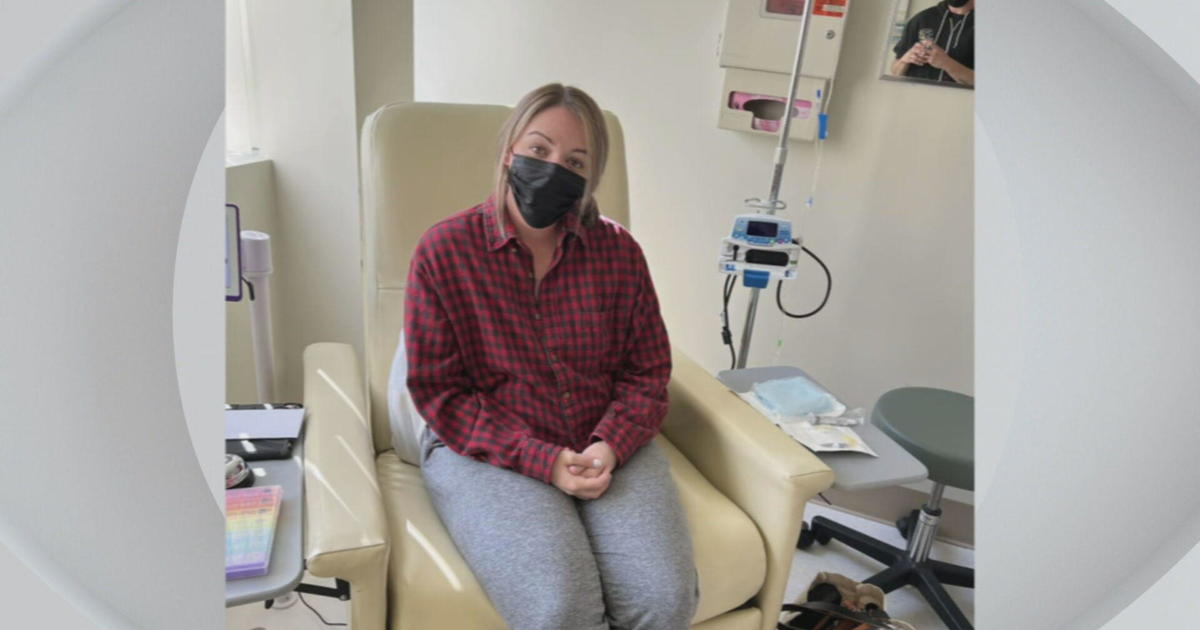Brain Injury: My Road To Recovery - Raising Awareness
BOSTON (CBS) - "Let me describe the brain to you this way. Imagine building a supercomputer out of a material as soft as jello. That's your brain."
This explanation is from Dr. Jim Holsapple, who knows a thing or two about the brain's makeup. Dr. Holsapple is chief of neurosurgery at Boston Medical Center. He supervised my care at BMC last summer after I suffered a traumatic brain injury in a bicycle accident.
I met with him for an interview in September. Dr. Holsapple said he never forgets the brain's fragility, or its importance.
"Every time I do an operation on somebody, and the brain is exposed, even after doing this for 25 years, it's an awesome experience. I still get a chill when we do this because, at that moment, I know that I'm looking at the physical substance of a person. Your brain is literally the physical substance of who you are," he said.
Listen: Mary Blake: My Road To Recovery - Part 9
Podcast
Recovering from a brain injury isn't easy.
Learning how to organize one's thoughts, how to regain balance, speech - there's a long list that can't be easily or quickly checked off. Some of it never will be.
"I would say when people ask me, about 100 percent of our clients have some form of memory problem. Everything else, where you're hurt, where in your brain, everything else is different on this," said Ann Gillespie. Gillespie is part owner of Community Rehab Care in Medford, where I underwent five months of therapy.
My doctor, Ross Zafonte, summed up my particular case this way.
"Many people are very good, like yourself, at multiple multi-tasking, able to keep ten balls in the air, yet, now they're not quite able to do that so readily. Basic common tasks, yes. Ten balls in the air, a little more difficult," said Dr. Zafonte.
I have often said navigating through the past six months has been one of the most difficult challenges of my life so far, surpassing crazy radio work schedules, raising four children, even caring for my parents during their terminal illnesses.
There was comfort in talking with ABC News journalist Bob Woodruff, who also suffered a traumatic brain injury.
His injury was much more serious than mine. Like me, he is now back at work. His injury occurred seven years ago in a roadside bomb attack in Iraq.
"I sometimes say that we know everything about the kidneys, the livers and the skin, but we just don't know anything, practically, about the brain," he told me. "And if there is an upside to the wars and the kind of injuries that have been caused because of the explosions that shake around the brain and the crashes and all that, it is that we are now learning more about the brains because we have so many more people like us to talk about them."
The Brain Injury Association of Massachusetts has been working to bring attention to traumatic brain injury for more than two decades.
Executive Director Arlene Korab says the organization, which has support groups around the state and chapters around the world, was initially launched in Framingham in 1980 by several mothers of brain-injured sons.
"We got together and said there's got to be something, I mean, there are programs for every other disability, but nobody was doing anything about brain injury," she said.
Korab chuckled for a moment as she thought back.
"A bunch of mothers were educating these highly trained medical people, but they needed to know that there's a need for them to do some more work and some more research and to find out how they can help."
She described her organization's mission.
"We educate, we advocate, we support and we do programs to prevent brain injuries."
RELATED: Listen to previous reports in this series
After the last six months, I cannot stress enough just how important prevention is when it comes to keeping the brain safe.
Nantucket Cottage Hospital's General Surgeon, Dr. Tim Leppore, acknowledged he was quite concerned about my outcome when he decided to have me MedFlighted to Boston Medical Center, in the immediate aftermath of my accident.
"I am just so pleased that you've done well," he said. "That's a gift." But he also added, "If you had worn a helmet, you would have been bruised, but unbroken."
Dr. Leppore is well known on Nantucket for his belief in mandatory bike helmet use.
There is currently a book out on Dr. Leppore called "Island Practice" by New York Times writer Pam Belluck. It is being developed into a television series for CBS.
"Helmet safety is the apex of what we need," he declared.
Lisa Allee, injury prevention coordinator at Boston Medical Center's Division of Trauma Surgery, has the numbers to back up bike helmet safety effectiveness.
She says bike helmets, made up of a simple piece of plastic with some foam inside, can reduce injury risk by 85 percent and reduce fatal injuries by 65 percent.
She is imploring parents to wear bike helmets along with their children.
"You don't want to be the parent who has a significant brain injury who your kids have to take care of you for the rest of your life, because you were the one who was not wearing a helmet," she warned.
Bike helmet safety has become my cautionary tale.
I honestly cringe now when I see a bicyclist without a helmet, since I know now what can happen with a fall.
Listen: Mary Blake: My Road To Recovery - Part 10
Podcast
Dr. Eric Mahoney, a trauma acute care surgeon at Boston Medical Center, says traumatic brain injuries are much more common than you might think.
"Your story is it can happen to anybody. In the blink of an eye, something you've done a thousand times, that one time, something can happen," he said.
I also now know traumatic brain injury recovery is a long journey, oftentimes through uncharted waters.
My broken bones healed long ago, but I continue to wrestle with what's called the 'new normal'. It's a somewhat ambiguous term because there's no baseline with a brain injury like mine. Sometimes determining whether a so-called deficiency is the 'old' you - or the 'new' you - is quite frankly a tossup.
But that momentary frustration aside, I am so indebted to the therapists who helped me recognize that the rewiring of the brain becomes more efficient with repetition.
They conducted a Brain Injury Group class, or BIG session, which went over the lobes of the brain, something I now know cold, especially when it comes to my damaged frontal lobe functions.
They helped me when I found, to my utter dismay, that I could no longer build blocks into patterns, something I had often done with my four children when they were young.
My therapists were truly amazing. I feel privileged to have met them and the medical staffs. I will forever be indebted to my family for always being there, along with my friends and my work colleagues too.
And finally, I am in such awe of the brain's amazing capacity to adapt and heal. The term is neuroplasticity and with it, comes hope for that 100 percent recovery, which I'm still striving for.
POSTSCRIPT
I wanted to provide an explanation of how I decided to do this series.
All of the interviews, with the exception of ABC News journalist Bob Woodruff, and his wife Lee, were done prior to my returning to work.
When my therapists initially learned of my profession, they recommended I do some mock interviews as a way of getting back up to speed.
I suggested doing the real thing instead and brought my digital recorder along. Hence, this series.
I concluded each interview by asking what that person wanted people to know about traumatic brain injury (TBI).
My favorite quote is from a fellow TBI client at Community Rehab Care in Medford.
He did not want to be taped, or give his name, but he asked me what I thought TBI was.
I responded, "traumatic brain injury" He said, "It's triumph begins inside."
I love that.
The following are other responses I received:
Listen: Mary Blake: My Road To Recovery - Postscript




